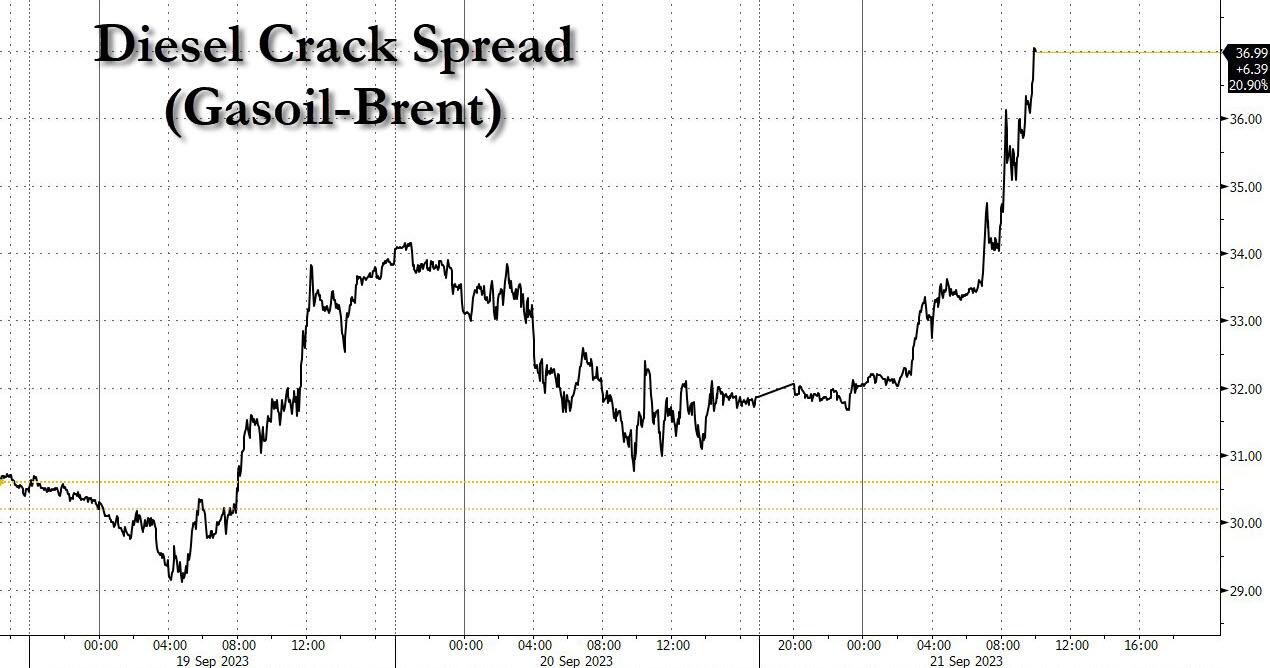“Temporary restrictions will help saturate the fuel market, that in turn will reduce prices for consumers” in Russia, the government’s press office said on its website. The “temporary” ban, which also applies to gasoline, comes into force today, Sept. 21, and doesn’t have the final date, according to the government decree, signed by Prime Minister Mikhail Mishustin.
Exemptions are made for minor supplies, including deliveries to some trade alliance partners as well as humanitarian aid and transit, the decree said.
Prices in Europe jumped at the threat the measure will aggravate already staggering global shortages. The world’s oil refiners are struggling to produce enough of the fuel amid curbed crude supplies from Russia and Saudi Arabia. Of course, this means that refiners are going to push prices sharply higher and – in the parlance of Joe Biden’s handlers – will print money again.
In northwest Europe, the premium of benchmark diesel futures to crude oil — known as the ICE Gasoil crack — soared sharply, topping $37 a barrel, and on pace to the highest level of the year.
Diesel futures for delivery in October also grew more expensive relative to barrels for arrival the following month, with backwardation surpassing $35 per ton. Brent has also spiked, reversing almost all of yesterday’s losses.
In effect, what Russia is doing by halting exports of product, is exporting higher prices to Europe.
Surging car-fuel prices have been one the biggest contributors to inflation, a potential political headache as the Kremlin prepares for the presidential election in March. Retail gasoline and diesel prices in Russia have climbed 9.4% from the start of the year to Sept. 18 compared with an increase in overall consumer prices of 4%, according to the most recent Federal Statistics Service data.
Russia’s government has spent weeks in talks with oil producers to decide on measures to rein in rising fuel prices. President Vladimir Putin said last week that officials and companies had agreed on how to act in the future, but the wrangling continued, Bloomberg sources said.
In the first 13 days of September, Russia exported an average of some 63,000 tons of diesel per day and just over 8,000 tons of gasoline per day, according to a person with knowledge of the matter. Daily diesel exports fell 31% compared with the average for the first 30 days in August as refineries undergo seasonal maintenance and producers redirected more fuel to the domestic market following government efforts to ease prices.
Putin decided the ECB needs a few more rate hikes
… with one simple signature, Putin has assured that any ECB hopes of an end to rate hikes have been dashed for good.


 Japanese
Japanese English
English French
French Hindi
Hindi Korean
Korean Arabic
Arabic Portuguese
Portuguese